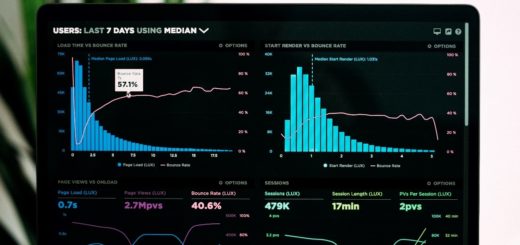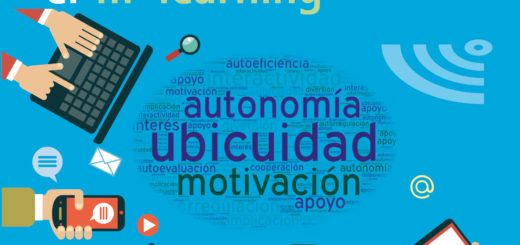English pronunciation in primary school students: A project in progress
The socio-educational relevance of learning English in childhood has increased substantially as a result of its emphasis on the Organic Law on Education 3/2020, as well as the set of recommendations issued by the European Commission (2020). In short, the pandemic, which has highlighted the need to address digital skills in students, as essential knowledge for participation in this post-digital society.
In this context, the project “e-ProFun: Effective English pronunciation in digital environments for the primary school EFL/CLIL class and beyond: Linguistic, pedagogical and didactic foundations” was born; framed in the state call for Ecological Transition and Digital Transition Projects 2021″ of the Ministry of Science and Innovation.
All this through a gamified and open-source platform that is part of competency-based teaching and learning, characterized by its transversality, dynamism and comprehensive nature. The results will be shared with the general public, not only improving the visibility of interdisciplinary research (which brings together knowledge from Digital Humanities, AI and ICT), but also improving the communicative competence of our society and contributing at the same time to ecological sustainability.
This proposal is developed by a multidisciplinary team of linguists/phoneticists and pedagogues, and experts in AI and engineering with proven experience in the production of educational materials. It is a proposal that combines the collaboration as PIs of Fernando Fraga-Varela for the Stellae Research Group and María de los Ángeles Gómez González for SCIMITAR/Discourse and Identity in the two cases of the USC, and Alfonso Lago Ferreiro and José Carlos López Ardao, from the attlanTTic Group of the UVigo.

Project development and first results
For the development of an educational software of these characteristics, it is proposed to take curricular references at the foreign language level through the documentary analysis of all the curricular provisions derived from the LOMLOE in Primary Education in all the Autonomous Communities of the Spanish territory, analyzing a total of 18 documents. The comparative review shows a disparity of criteria in the development of curricula among the Autonomous Communities, in terms of their extension and the conceptualization of the different curricular elements. This analysis has made it possible to detect the needs and difficulties involved in the implementation of educational software with curricular anchoring for the entire national territory.
In addition, textbooks from the dominant publishers in Primary Education were analyzed with the intention of complementing the vision of the learning of the project’s contents. The information collected was referred to the phonetics group to configure a database of phonemes with which the AI platform could later be trained.
In a second phase, four focus groups were developed with teachers from both public and private schools. Different positions were detected depending on the ownership of the centres. On the one hand, teachers in public schools manifest great deficiencies in phonetics, the cause of which is anchored in the domain of certain publishers that predispose the organization of content and methodologies; the existence of non-explicit work for students in the form of songs, games and proposals that help to modulate pronunciation and its improvement, but which are often insufficient; various problems such as the schedules, spaces, times and resources available to them. In addition, tensions are made explicit due to the absence of digital resources and training to take on the changes introduced by digitalization and new legislative demands; They make it clear that digital material is insufficient in public schools. Finally, they perceive high levels of bureaucratization of teaching work, which hinders teacher professional development. However, the teachers who have participated from private schools have a positive view of the use of digital and analogue resources. Emphasizing the use of a proprietary platform for learning the English language, in a variety of learning situations (seminars, workshops and projects).
In order to obtain a broad vision of the needs detected, a questionnaire was designed to know the perspective of primary school teachers who teach this foreign language subject on the value of English pronunciation and what strategies and resources they implement when working on it. In addition, to know the current work context of teachers that may hinder or facilitate the implementation of proposals to work on pronunciation in the classroom. This phase of the work is in preparation for its launch throughout the national territory, with an estimated month of October of this year for its implementation.
The development of the software continues to progress through general coordination meetings of all the teams involved. A training itinerary has been materialized based on the contributions of the focus groups, the curricular demands and the logical structuring of the contents related to English phonetics. The software is fully operational and the entire process of preparing the sequences for the different proposed sessions is being finalized, while the first interface propototypes are being evaluated.
References
European Commission (2020). Communication from the Commission to the European Parliament, the Council, the European Economic and Social Committee and the Committee of the Regions on achieving the European Education Area by 2025. COM/2020/625. https://eur-lex.europa.eu/legal-content/ES/TXT/HTML/?uri=CELEX:52020DC0625
Organic Law 3/2020, of 29 December, amending Organic Law 2/2006, of 3 May, on Education. Official State Gazette, 340, of 30 December 2020. https://www.boe.es/eli/es/lo/2020/12/29/3

Authors:
Angela Gonzalez-Villa; Inés Ramos-Trasar; Fernando Fraga-Varela
Stellae Research Group
University of Santiago de Compostela






